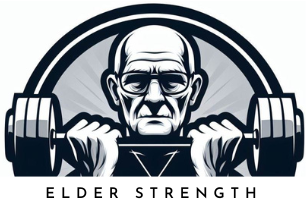Welcome friend! In this post, you will learn about the best constipation remedies for seniors. There are many remedies but I’ve found two common and cheap ones to be superior to anything else.
Ah, constipation. The favorite topic of discussion of everyone. Isn’t it?
Sorry for the sarcasm. I guess the older you get the more natural it becomes to talk about medical issues even if they feel embarrassing at first hand. And it’s definitely important to talk about them.
But even if you don’t prefer to discuss your bowel movements with anyone else, you should talk about them with your doctor. Fortunately, we also have the Internet where we can discuss and share information about topics that are not suited for the dinner table.
As someone who has had chronic constipation most of my life, I can sympathize with your ordeal. Having normal bowel movements is crucial for health and happiness. Something you don’t really think about unless you have to. It’s incredibly stressful, uncomfortable, and sometimes painful to suffer from chronic constipation.
Fortunately, there is a lot you can do with lifestyle choices and supplements to prevent and treat constipation.
Important Medical Information
Before we continue it’s important to talk a little bit about the possible health implications of constipation.
Constipation is very common, especially in seniors but sometimes it can be a sign of something else going wrong with your body and digestion.
This is why it’s important to get a check-up and talk to your doctor before self-diagnosing. The most important reason is that older people are at a much higher risk of developing colon cancer and sometimes constipation is a symptom of it.
Don’t be too alarmed by this information, the odds are that you are just suffering from regular constipation. But it’s wise to get an actual medical opinion. The advice on this website or anywhere online can’t replace actual medical information.
You should be especially careful to go to the doctor if your constipation is associated with pain, weight loss, or bleeding.
Another health consideration with remedies is that a natural remedy doesn’t mean that they are always completely safe. Especially if taken with medication. That’s why it’s important to talk to your doctor before adding any remedies to your diet so you can be sure they don’t interfere with any of your medications or physical conditions.
What Is Constipation
By definition, constipation means reduced intervals of bowel movements. Because there is huge individual variability between normal bowel transit time, what constitutes as constipation for someone might be normal for someone else.
Also hard and painful bowel movements can be considered constipation even if the interval isn’t exceptionally long.
The generally accepted medical definition is less than 3 bowel movements per week. Typically at this rate, even the extremes are suffering from constipation to some extent.
Constipation is not typically dangerous but it can be very uncomfortable due to secondary ailments like stomach cramps, hemorrhoids, anal fissures, and even fatigue.
What constipation actually consists of is hardened fecal matter that isn’t moving at the required rate. There can be several mechanisms that cause this that we will look at in the next chapter.
Mild constipation is just a nuisance that can cause discomfort and bloating but extreme cases can end up in bowel obstruction which is a medical emergency. Probably the most disheartening symptom of constipation is painful defecation that can end up with fissures and hemorrhoids.
What Causes Constipation (especially for seniors)
Like we established, there are huge variations between individuals to how long it takes food to travel through their intestines. Some people have to take two bowel movements a day and some take one every other day.
The longer your regular interval is, the higher chance you have of developing constipation. So constipation is at least partly hereditary, but you can’t change the physical structure of your bowels.
But there are other factors you can change that play a huge role. The most important ones are your diet and hydration.
As people get older, their metabolism typically gets slower. This will cause either weight gain or reduced amounts of food intake or both. The amount you eat directly affects your transit time. I’m sure that you have noticed a need to go to the bathroom after a heavy meal or during the holidays.
Aging often causes reduced thirst sensation which can lead to drinking too little water. Hydration is very important because the lack of water in the stool will cause it to dry up when nutrients are taken in. This will make fecal matter hard which prevents it from moving, causing constipation.
Aging also often leads to people being less active and reducing exercise levels. Both of which reduce your metabolism and slow down the gut. Exercise, food, and water really are what keep our gut going.
Many diseases and medications can also cause constipation through several mechanisms. Also, mental health problems and stress can cause constipation because the gut and the brain are connected through the central nervous system.
The Best Remedies For Constipation
Fortunately, there is a lot you can do to reduce constipation or even cure it completely. There are two supplements that I have found to be superior to any over-the-counter medication I’ve tried.
Once again, talk to your doctor before incorporating any new supplements to make sure there are no contraindications.
Also a word about actual constipation medication. There are several very effective products out there but the problem is that the really effective ones are addictive as they teach your bowels to work only when taking the medicine.
Some of the ones that just add bulk to stool should be ok in the long term but I’ve found many of them to cause flatulence, bloating, and stomach pains. While dosed correctly these remedies don’t seem to, at least in my case.
1. Magnesium Oxide
Magnesium oxide is my number one recommendation if you want to get your bowels working regularly. I’ve been supplemented it for years and as far as I know, it has a two-way function and no harmful long-term effects as long as you don’t overdo it.
Many people are deficient in magnesium and it is a key factor in muscle relaxation. Supplementing magnesium can help your central nervous system and muscles to relax, aiding in digestion and bowel function.
More importantly, magnesium oxide is the least soluble form of magnesium. Now you might not think this is a good thing at first but it actually retains fluid in your stools. That’s why taking too much of it can cause diarrhea. This is of course beneficial for constipation because it keeps the stool soft when taken in the right amounts.
It’s important to start light because of the diarrhea risk and magnesium supplements are something you definitely need to check with your doctors because there are some drug interactions. Medline has a great article about magnesium for constipation if you want to learn more.
The typical dose is about 350 mg and that is a good starting point. Many magnesium supplements have additives so follow the information on the bottle. And listen to your doctor.
Magnesium typically starts working within 24 hours and I’ve personally supplemented it almost daily for years since it’s also something that many people don’t get enough in their diet.
I guess it’s even possible that magnesium deficiency is partly the cause of your constipation.
2. Psyllium husks
My second recommendation is a fiber supplement called psyllium husks. They are ground husks of a psyllium plant and are mostly made of soluble fiber.
Psyllium is often used in gluten-free baking to add viscosity to the gluten-free flour because the soluble fiber in psyllium husks forms a gelatinous substance when mixed with water.
This gelatinous substance is incredibly effective for treating constipation. It adds moisture, bulk, and lubrication to the stool, making stool much softer and easier to pass.
The same effect can be achieved at least with chia seeds and likely with slime-made oat of oats if you can’t find psyllium husks locally.
My tip is to look for a bulk source, some psyllium husks are extremely expensive while it’s dirt cheap if you can get it in bulk. I personally supplement about a tablespoon every night.
You can mix it in a smoothie or yogurt, just beware it will turn into a jelly pretty fast so don’t let it sit once you mix it into something.
Psyllium has been associated with reduced blood cholesterol levels and as far as I know, there are no negative side effects. I guess it could affect the absorption of some drugs, so once again run it by your doctor.
3. Diet, hydration, and exercise
This should actually be the first remedy but it is so obvious that most people already have tried everything and I know for a fact that magnesium and psyllium work like wonder for chronic constipation.
But in case you are not aware, your diet and activity levels have a huge impact on your bowel movements. If you eat mainly processed foods, rarely drink water, and are sedentary, no amount of remedies or medication will help your constipation in the long term.
I understand that it’s possible that you are not able to exercise much due to disability for example, but keeping your diet and hydration in check should be the minimum for constipation prevention.
A diet high in vegetables, whole grains and good carbs like tubers is your best bet. Add lean proteins and good fats and plenty of water and that’s pretty much the best you can do.
The great thing about eating fresh vegetables and low-fat protein is that you can eat A LOT more than eating processed foods without eating too much and gaining weight.
That said there are also people who get bowel irritation from too much fiber and fodmaps (long carbs that are broken down by gut bacteria). In these cases, it’s best to work with a nutritionist or a qualified doctor to create a diet that doesn’t cause irritation and helps with constipation.
If you don’t have disabilities that prevent exercise, a regular strength training program combined with daily walks is a great way to increase your metabolism and keep your body healthy.
Conclusion
I hope you found these constipation remedies for seniors useful. You are definitely not alone with your problem since almost everyone suffers from constipation at some point in their life. Constipation is also extremely common among seniors.
The good news is that a few simple lifestyle changes can help you both solve constipation and improve your general health. That’s why a healthy diet, good hydration, and enough exercise are incredibly important for your wellbeing.
But if you are someone who has true chronic constipation or because it’s due to medication or illness, the two supplements I recommended can really help. I can personally vouch for them, just make sure to run them by your doctor.
The combination of magnesium oxide and psyllium husks daily will make your stool soft and easier to pass. This is because they will both retain water in the stool and the magnesium helps your bowels to relax, making defecation easier.
If you found this post useful and know someone who might benefit from the information, remember to share it!
Thanks for reading and see you next time.

